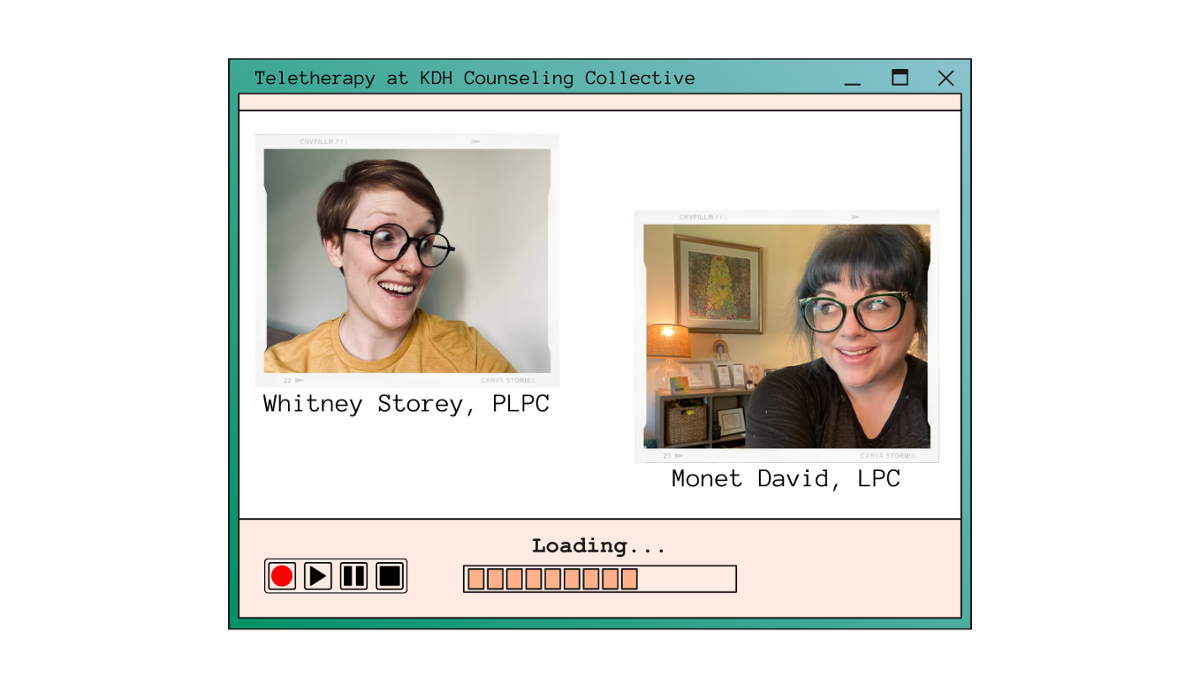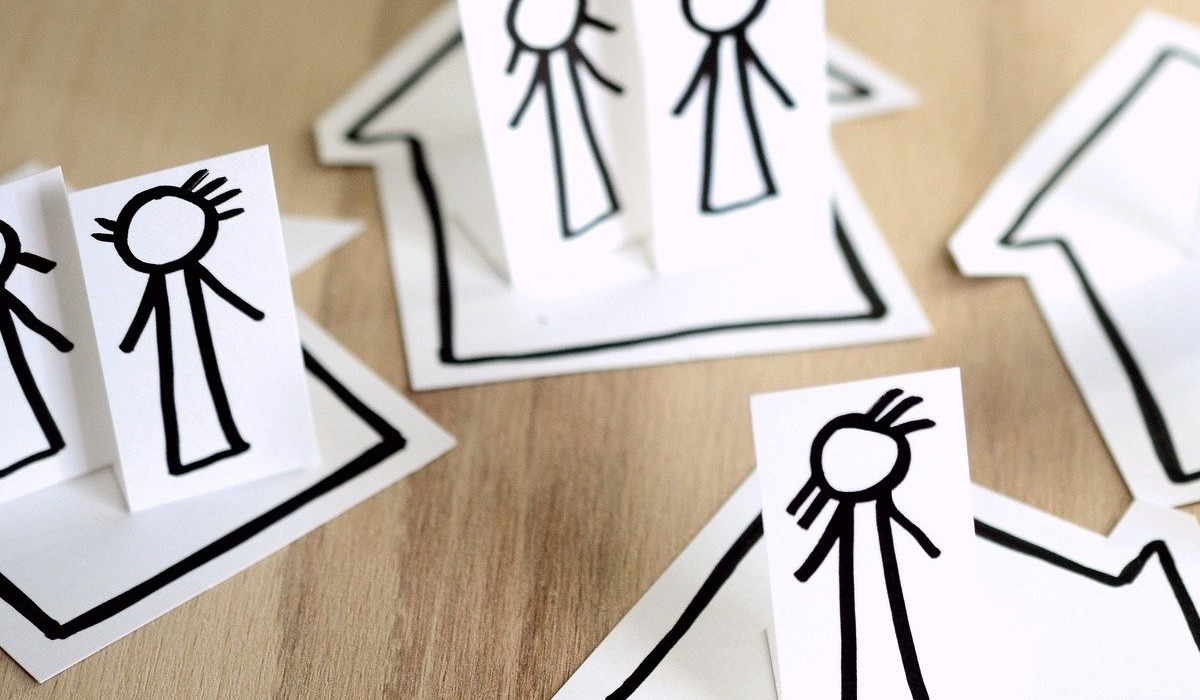What does Acceptance and Commitment Therapy Have for Me?
If you were to randomly choose a therapist, you would likely end up with someone who uses cognitive-behavioral therapy (CBT), which has been the...
4 min read
Whitney Storey, MS, LPC, and Monet David, MS, LPC : Apr 11, 2025 10:30:35 AM

The COVID-19 pandemic really turned the mental health world on its head. Not only have rates of mental health issues increased, but therapy completely revamped itself to accommodate for the risks involved in contact between clinician and client. Now that the world is settling a bit, we have had some time to reflect back on the last two years and to explore the research about teletherapy.
Teletherapy includes Zoom–I became Zoom savvy during the pandemic and we were able to purchase the HIPAA compliant Zoom package for our practice that ensures our client’s privacy. I also love zoom because you can augment your face to look flawless and I need my clients to think I have it all together as a human being.
Those filters are so flattering! Most folks have had experience with Zoom, so the look and feel of Zoom is helpful for imagining what teletherapy looks like. Generally clients and I can see each other from the shoulders-up and, in ideal situations, we don’t miss out on a lot of those facial expressions and voice changes that we would notice in a face-to-face setting. It’s still the same length of a session - 50 to 55 minutes. We are still working in the same way than we would in the therapy room…clients just get the added bonus of no travel time and access to the comfort items of their choosing.
While the facial expressions and vocal cues are there - I miss out on some of the other face-to-face body language cues in teletherapy. For example, the way that someone is sitting and little movements of their feet can tell me a lot about what they are feeling and I love being able to point out subtle shifts to highlight important moments and to help both of us come back into the present moment together.
All of that being said, I and my clients love the convenience of telehealth. We only look put-together from the waist up, and speaking of those filters again, sometimes even no makeup or really work-intensive hairstyling! Teletherapy can sometimes be fit in during a lunch break or between classes so folks don’t have to take off from work or miss class. For some clients, too, it can feel a bit more comfortable to speak about difficult things with the distance of teletherapy.
Teletherapy allows me to serve clients who are looking for my specific skill-set regardless of where they live within the state of Louisiana–I consider that a big win in my book especially if they have been searching high and low for services and just didn’t find a therapist in their area to fit their needs. Louisiana is so rural that often people have a choice of 1 or 2 clinicians and that’s if they are willing to drive up to 30 minutes away to see them. The downside to teletherapy is that it is just not a good fit for some clients. For teletherapy to work you basically need to be super motivated, possess a good internet connection, have the ability to ensure your privacy and have the technology to successfully participate. That’s asking a lot!
Conscientious therapists do teletherapy well. Therapists who have the ability and confidence to use technology also do teletherapy well. If I’m being honest, teletherapy is not my ideal method but I understand the barriers to treatment that exist for clients and often it’s worth the additional effort to serve them. I like being in the same room as my client and being able to gather data based on their body language, which doesn’t happen with teletherapy.
Yes! Teletherapy works well for folks who are comfortable with technology. For some folks, their internet or their computer or smartphone are just not reliable. Some folks don’t have a quiet, private place. As a client, I used teletherapy for my own postpartum needs during 2020 and 2021, and it was difficult to focus as fully on my therapist when I could hear my baby crying in the background, for example. All of that being said, for clients who don't have these issues - teletherapy is a really great choice, and I have grown to appreciate the benefits!
The ideal client for teletherapy is one that is highly motivated. They have a good understanding of what therapy entails and may have past therapy experience. They arrive to session with what has been on their mind or what they want to process with the time we have together. Preparation for teletherapy would look like checking your internet speed and making sure it’s optimal for sessions, creating a private area that will become the designated location for sessions, and getting familiar with the technology being used for session (so downloading zoom, checking the settings/functions, etc.).
An ideal teletherapy client would have all of the things Monet mentioned, and especially being ready for what teletherapy entails! Even if a client is not therapy- or counseling-savvy, if they get along with technology and are ready to dive into the therapeutic process, the rest can fall into place. The past two years have made us more comfortable with seeing and hearing ourselves on video screens, so more folks could really benefit from teletherapy, especially if that gives them access to clinicians with whom they click.

If you were to randomly choose a therapist, you would likely end up with someone who uses cognitive-behavioral therapy (CBT), which has been the...

Ten years into marriage, I find it so odd that all of the classic children's stories end in the same way. People find each other, they make a...

Since I am a mother and one of my specialties is parenting, I have parents reach out to me and ask if I can counsel their children, and they are...